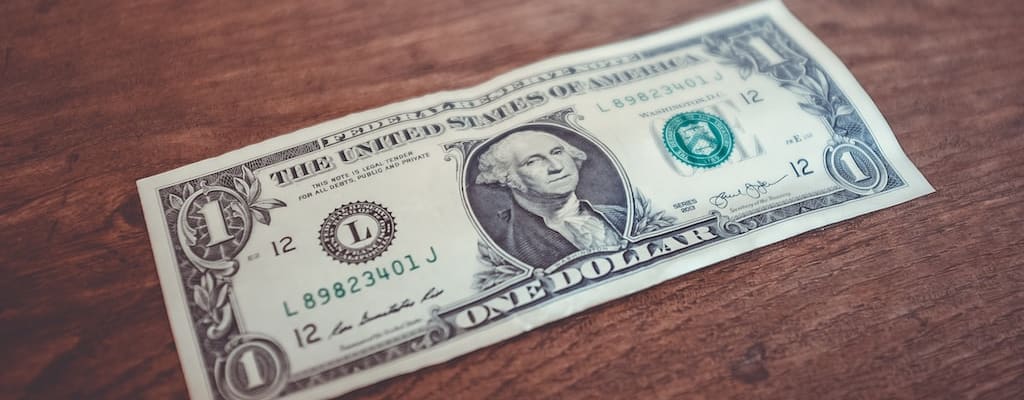in the money: Idiom Meaning and Origin
What does ‘in the money’ mean?
The idiom "in the money" means to be in a financially successful or prosperous situation.

Idiom Explorer
The idiom "on the money" means to be exactly correct or accurate.
The idiom "laugh all the way to the bank" means to feel a sense of satisfaction or joy when you have made a lot of money or have been successful in financial matters.
The idiom "land poor" means to be wealthy in terms of owning land, but lacking the necessary funds or resources to maintain or develop it, resulting in financial difficulty.
The idiom "in the lead" means to be in a leading or winning position, often in a competition or race.
The idiom "in the hole" means to be in debt or in a difficult financial situation. It is often used to describe a person or a company that owes money and is struggling to repay it.
The idiom "in the green tree … in the dry" means being in a favorable or advantageous situation versus being in a difficult situation or unfavorable conditions.
The idiom "in the cards" means something is likely to happen or is destined to happen.
The idiom "in the black" means to be financially solvent or profitable, typically used to describe a business or organization. It signifies the state of having positive earnings, as opposed to being in debt or operating at a loss. This idiom is rooted in the convention of using black ink to represent profit on financial statements.
The idiom "in one's pocket" means having control or influence over someone or something.
The idiom "hit the jackpot" means to achieve a great success or obtain an unexpected, significant gain, often in a financial sense.
Unraveling the Phrase
Originating from the early 20th century, the idiom "in the money" is widely used in American English to describe a person or situation that is financially successful or profitable. It is believed to have originated from the world of horse racing and gambling, where finishing "in the money" meant securing a payout. The phrase has since evolved to encompass broader contexts, pertaining to people, businesses, or even events that have achieved monetary success.
The idiom "in the money" often refers to something or someone that has come into possession of wealth or a significant amount of money. It can describe individuals who have experienced a financial windfall, such as winning the lottery or inheriting a large sum, leading to a state of affluence. Additionally, it can signify individuals who are simply doing well financially or have a steady income.
Furthermore, the idiom can be used to describe businesses or enterprises that are thriving financially. A company that is "in the money" has surpassed its financial goals or expectations, generating substantial profits. This could be attributed to successful investments, booming sales, or a combination of factors that contribute to the overall financial success of the organization.
In the realm of sports and entertainment, "in the money" is often associated with events or performances that generate significant revenue. Whether it be a sold-out concert, a blockbuster movie, or a highly attended sports match, if an event is "in the money," it means that it has attracted large audiences or customers, resulting in substantial monetary gain for the organizers, performers, or players.
The idiom "in the money" can also be used metaphorically to describe financially advantageous situations or circumstances. For example, if a person lands a job with a lucrative salary or secures a profitable business deal, they can be said to be "in the money." Similarly, if a stock or investment shows signs of significant growth and potential returns, it can be said to be "in the money."
Overall, the idiom "in the money" has become deeply ingrained in the colloquial language of American English. It serves as a powerful expression to convey financial success or prosperity, whether it be personal wealth, the attainment of financial goals, or the achievement of financial milestones for individuals, businesses, events, or situations. Its versatility allows it to be used in various contexts, making it a widely recognized and commonly used idiom.
The related idiom "on the money" shares a similar connotation with "in the money." It is often used to describe something that is accurate, correct, or precisely what is needed or expected. For example, if someone makes a prediction that turns out to be true, you can say they were "on the money." This phrase can also be used in the context of financial success, indicating that someone has made a wise investment or decision that has resulted in monetary gain.
Another related idiom, "in the black," is also connected to financial success. It is used to describe a business or individual who is making a profit and has positive financial figures. The term "black" here represents the positive balance or surplus in financial statements, as opposed to "in the red," which refers to a negative balance or deficit. So, if a company is "in the black," it means they are financially healthy and successful.
The idiom "cashed up" is another expression that relates to financial prosperity. It specifically refers to someone who has a lot of cash or money available, typically due to a recent financial gain or success. For example, if someone wins a large sum of money from a competition, you can say they are "cashed up." This idiom implies that the person is financially comfortable and has the means to make purchases or investments.
Lastly, the phrase "big bucks" is commonly used to talk about a large amount of money or a significant sum. It is often used informally and colloquially to emphasize the magnitude of wealth or financial value involved. For instance, if someone lands a job with a high salary, you might say they are earning "big bucks." This expression highlights the substantial financial reward and implies a significant level of success or accomplishment.
Example usage
Examples of the idiom "in the money" being used in a sentence include:
1. She won the lottery and suddenly found herself in the money.
2. After years of hard work, he finally landed a high-paying job and was finally in the money.
3. The stock market took a positive turn and many investors found themselves in the money.
More "Finance" idioms



